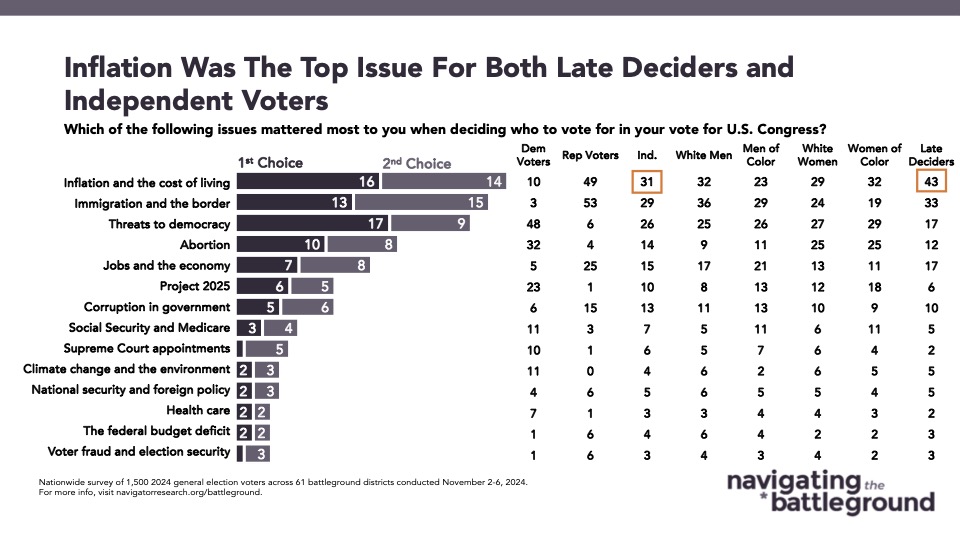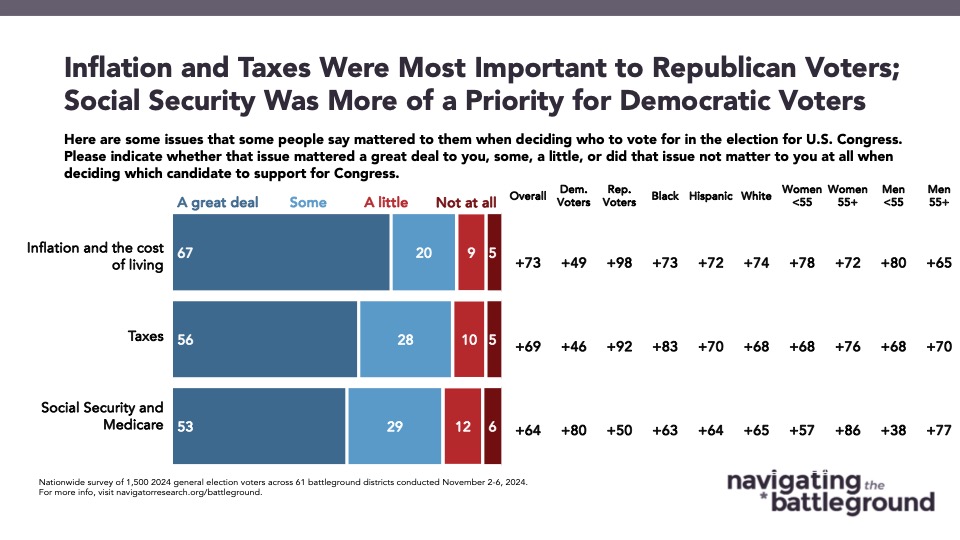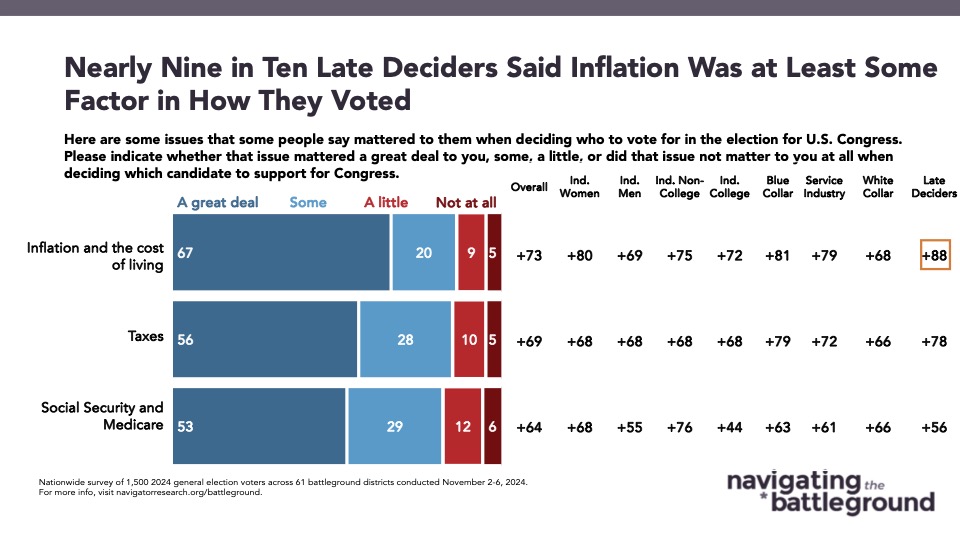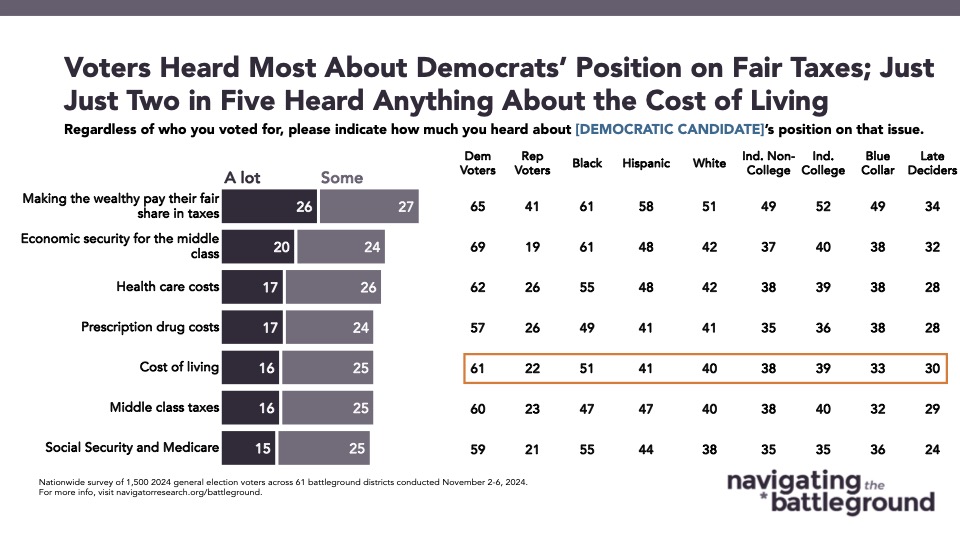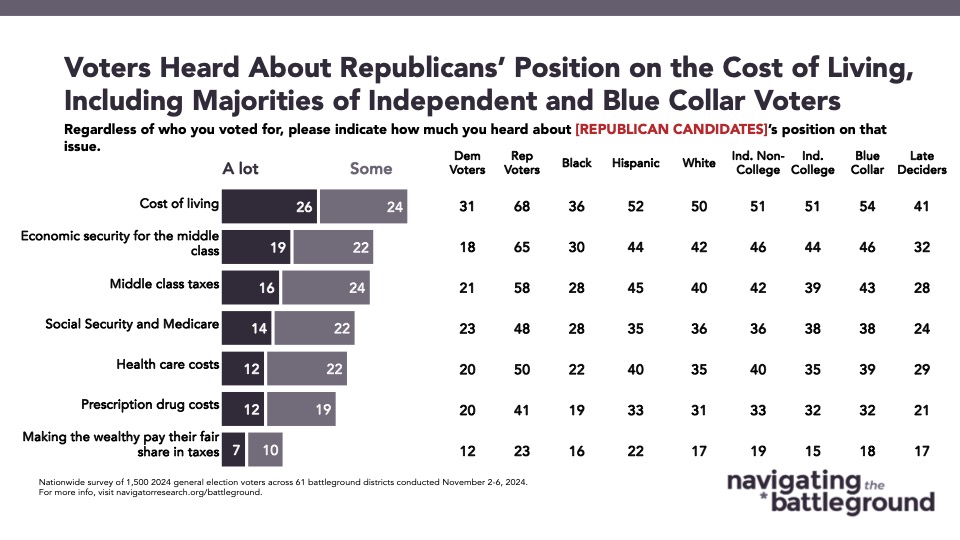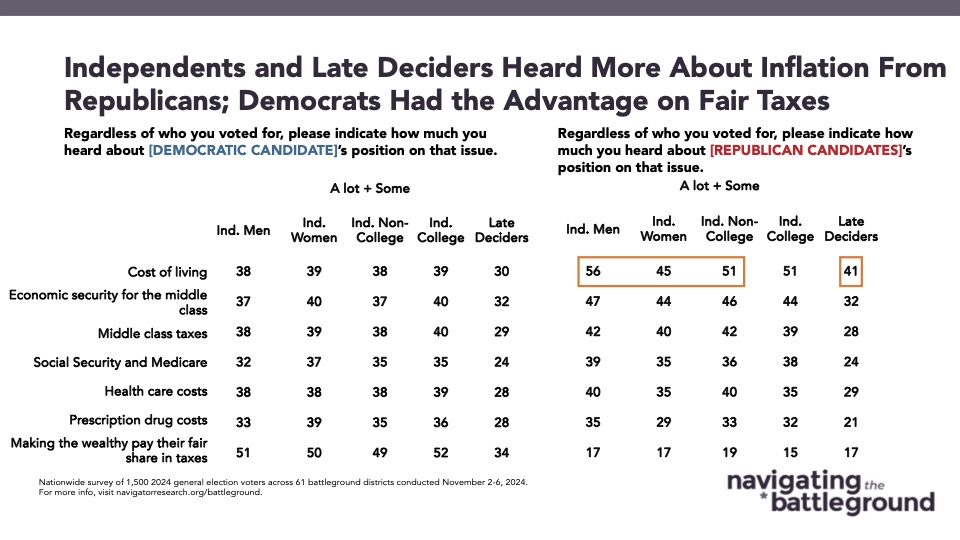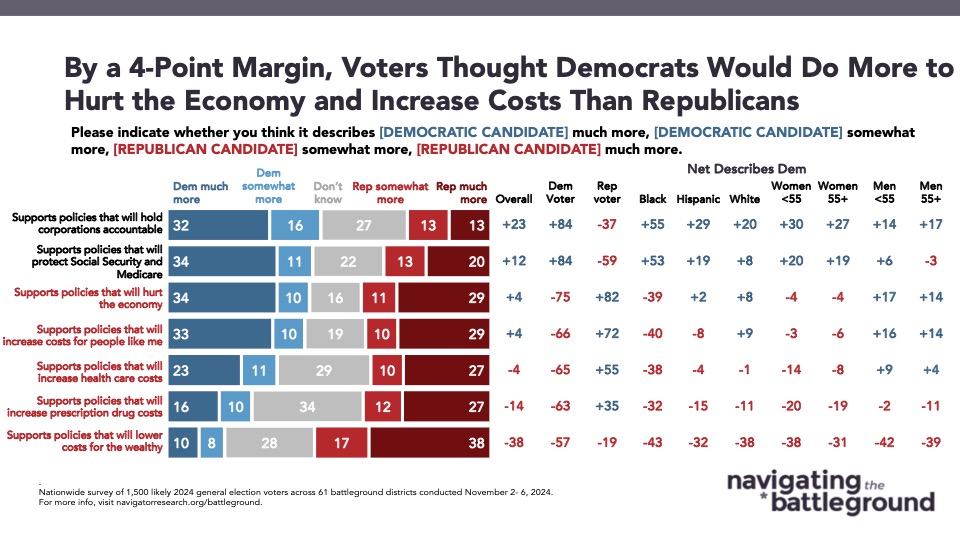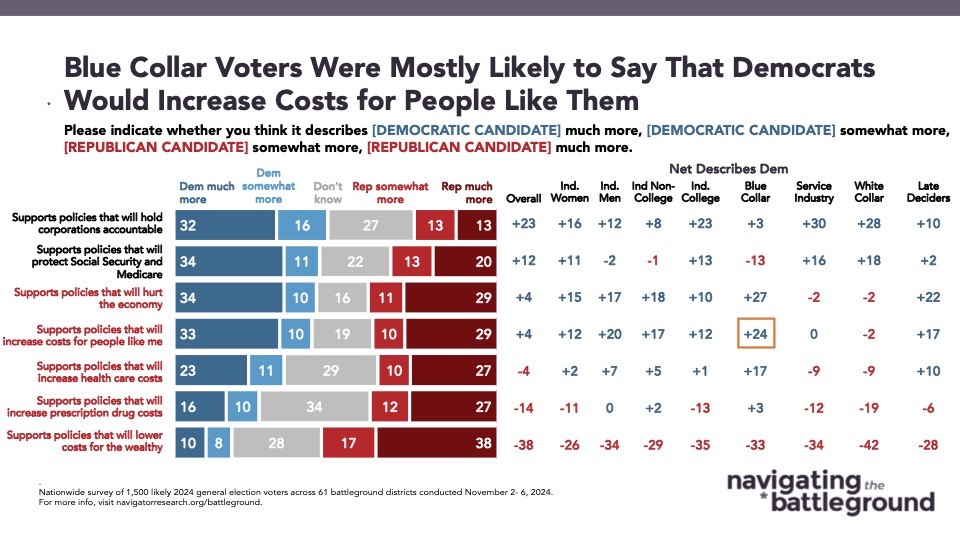Exit Poll: Parties on Inflation and the Economy
This Navigator Research report is the next in our series of releases from our House battleground survey among 2024 voters in closely-divided battleground districts. This release looks at how issues related to the economy — particularly inflation and the cost of living — played a role in vote choice for congressional candidates.
Concern about the cost of living was the top issue for late deciders.
Inflation was the top issue for most voters and a concern for nearly all, but it was particularly important for independents and late deciders in their vote for Congress. Nearly 90 percent of late deciders said inflation was at least some factor in how they voted, with three in ten ranking inflation as their top priority in this election (30 percent). Immigration trailed closely as the second most important issue (28 percent), with 33 percent of late deciders identifying it as a top concern. While late deciders leaned Republican, they were still much more likely than Republican voters overall to prioritize threats to democracy and abortion, suggesting Democratic messaging had some resonance among this group.
Democratic voters were significantly more likely to prioritize threats to democracy (48 percent), abortion (32 percent), and Project 2025 (23 percent), and were among the only subgroups of the electorate to prioritize these issues over inflation.
Men were more likely to prioritize inflation regardless of race in this survey, with men of color (29 percent) and white men (36 percent) listing immigration and the border as their top priority. These groups were only subgroups of the electorate to prioritize immigration over inflation and the cost of living.
Battleground voters heard more about Republicans; plans to address cost of living pains.
Voters were more likely to hear Republicans addressing cost of living and inflation, while Democrats were seen as focusing more on taxes and health care costs. Among battleground voters, 53 percent reported hearing “a lot” or “some” about Democrats’ position on making the wealthy pay their fair share of taxes, compared to only 41 percent who said the same about Democrats’ position on cost of living. The inverse was true for Republicans, with 50 percent of voters in battleground districts hearing “a lot” or “some” about their position on inflation. This also extended to late deciders, where only 30 percent heard “a lot” or “some” from Democrats on cost of living compared to 41 percent who heard the same from Republicans.
Voters thought Democrats would do more than Republicans to hurt the economy and increase costs.
Battleground voters not only heard less from Democrats about their plans to address inflation, but many also believed that Democratic policies would raise costs for people like them and hurt the economy. When asked which candidate in their district was better described by statements like “supports policies that would hurt the economy,” 47 percent of battleground voters said it described Democratic candidates more compared to 43 percent of Republicans; on which candidate “supports policies that would increase costs for people like me,” there was a similar 4-point disadvantage for Democratic candidates (43 percent said this described Democratic candidates better compared to 39 percent who said the same for Republican candidates).

